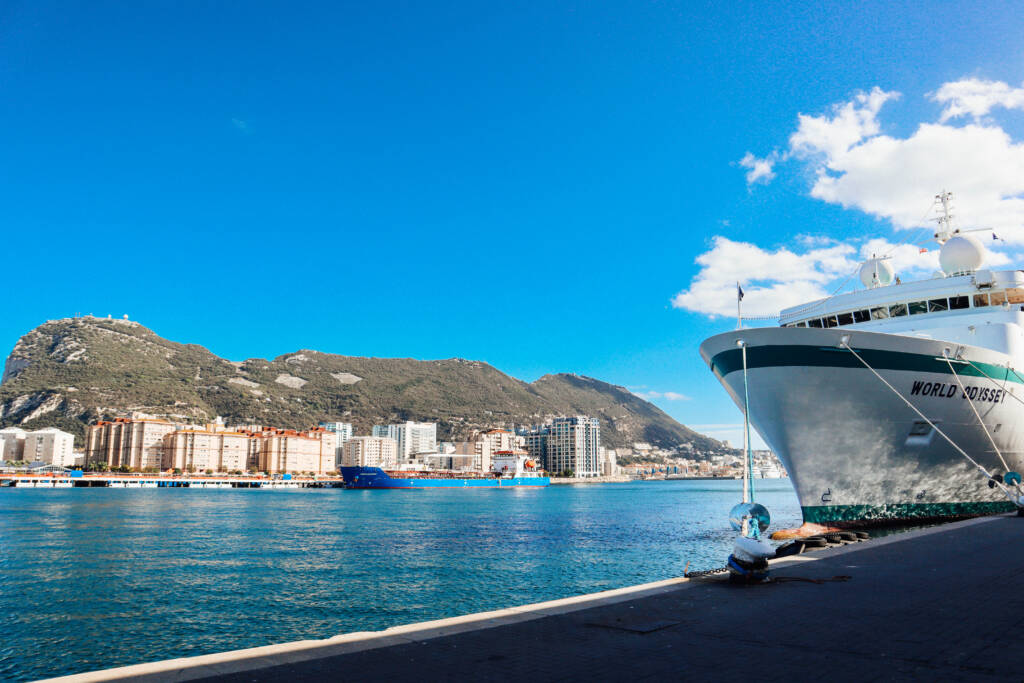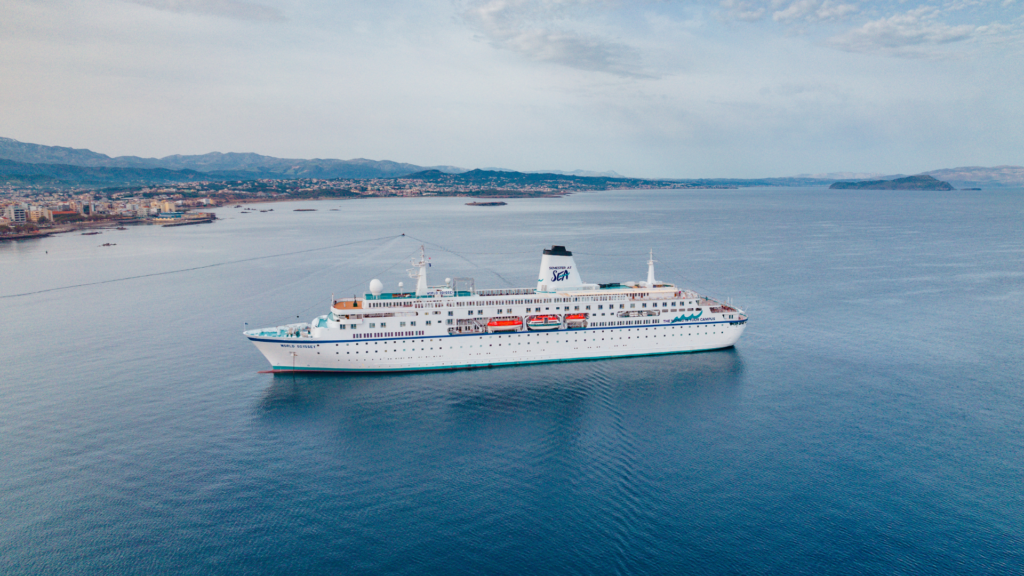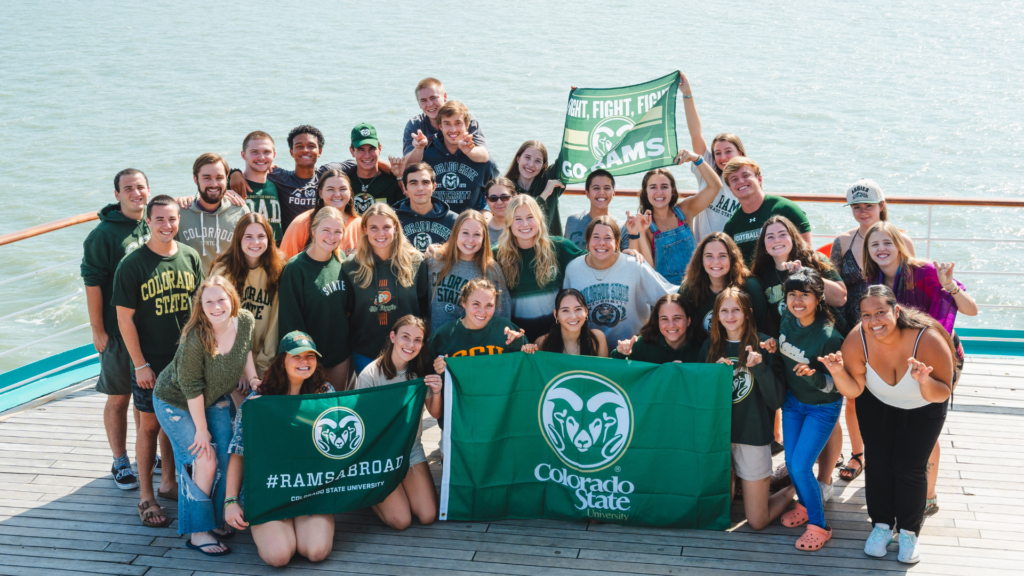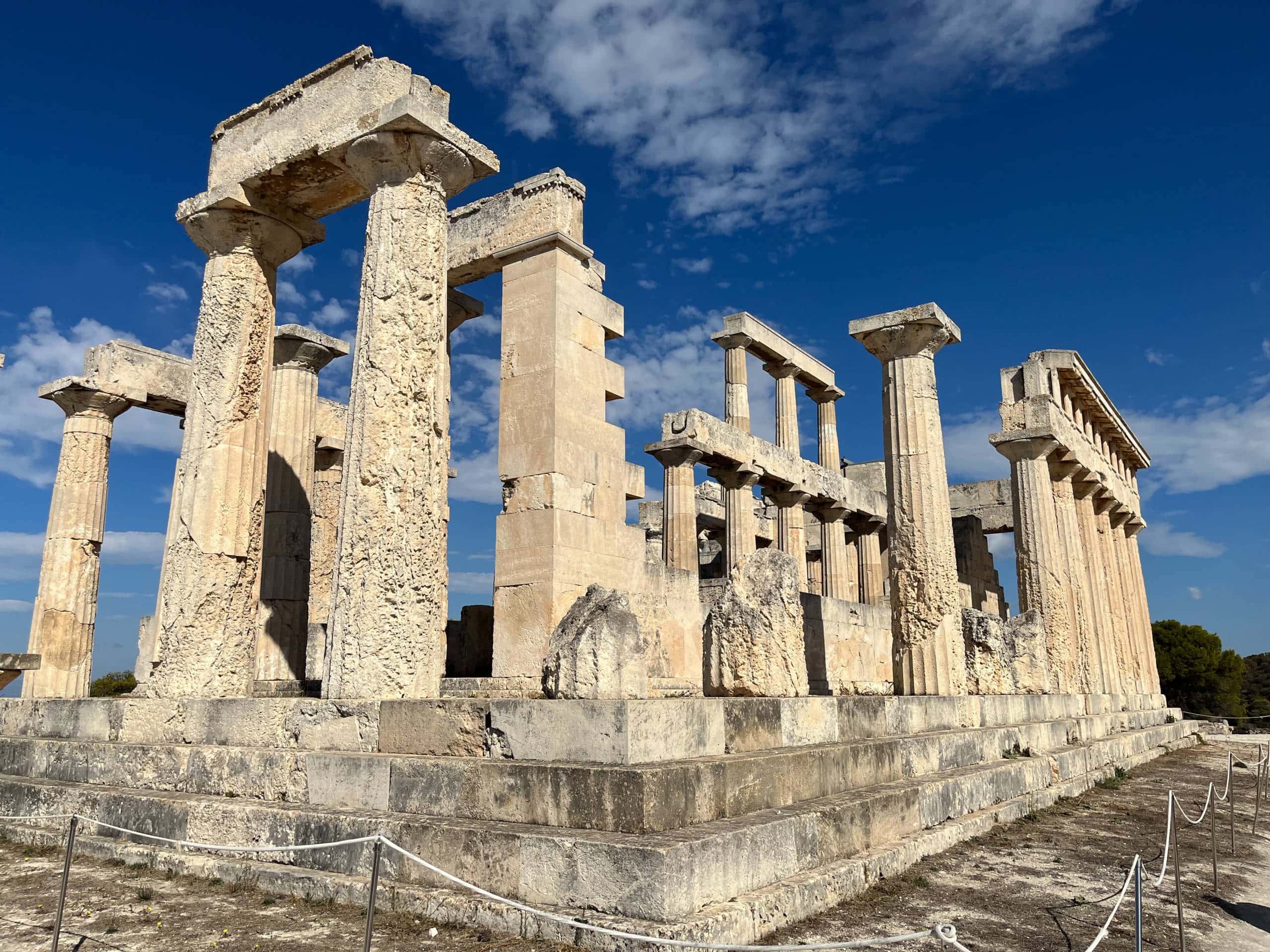
When sharing about my upcoming travel on Semester at Sea, people back home got very excited when I mentioned that I was going to Greece. Aside from India, it was the port that got the most reactions. Greece is a popular destination because of its iconic landmarks such as Mount Olympus and the Parthenon and the spark of Western philosophy, democracy, and mythology. People imagined a pastoral scene of slow green hills, soft Mediterranean shores, and blistering white marble and alabaster. The port of Piraeus was not that.
Piraeus was industrial, noisy, and modern. Storage crates and freighters lined the sea. Cars zipped by pop-up convenience stores peddling iPhone chargers and cigarettes. Plastic bags blew against the benches lining the port as the smell of kerosene from the ferries wafted toward the city. Most of the voyagers did not plan to stay in Piraeus long, eager to migrate to a more popular city such as Athens or to Mykonos and Santorini.
When I looked at the breadth of the voyage, I knew that I would be arriving in port cities, but I didn’t really register that urbanity was going to be so prevalent. Semester at Sea is largely an exploration of international urban space unless one makes a conscious effort to get out of it. And so, we made an effort. My friends and I, using the Green Sheet provided to us at the Greece Pre-Port were able to find the ferry terminal and reserve some seats to head to Aegina, an island very near Piraeus. When we arrived, we were greeted with a different scene.
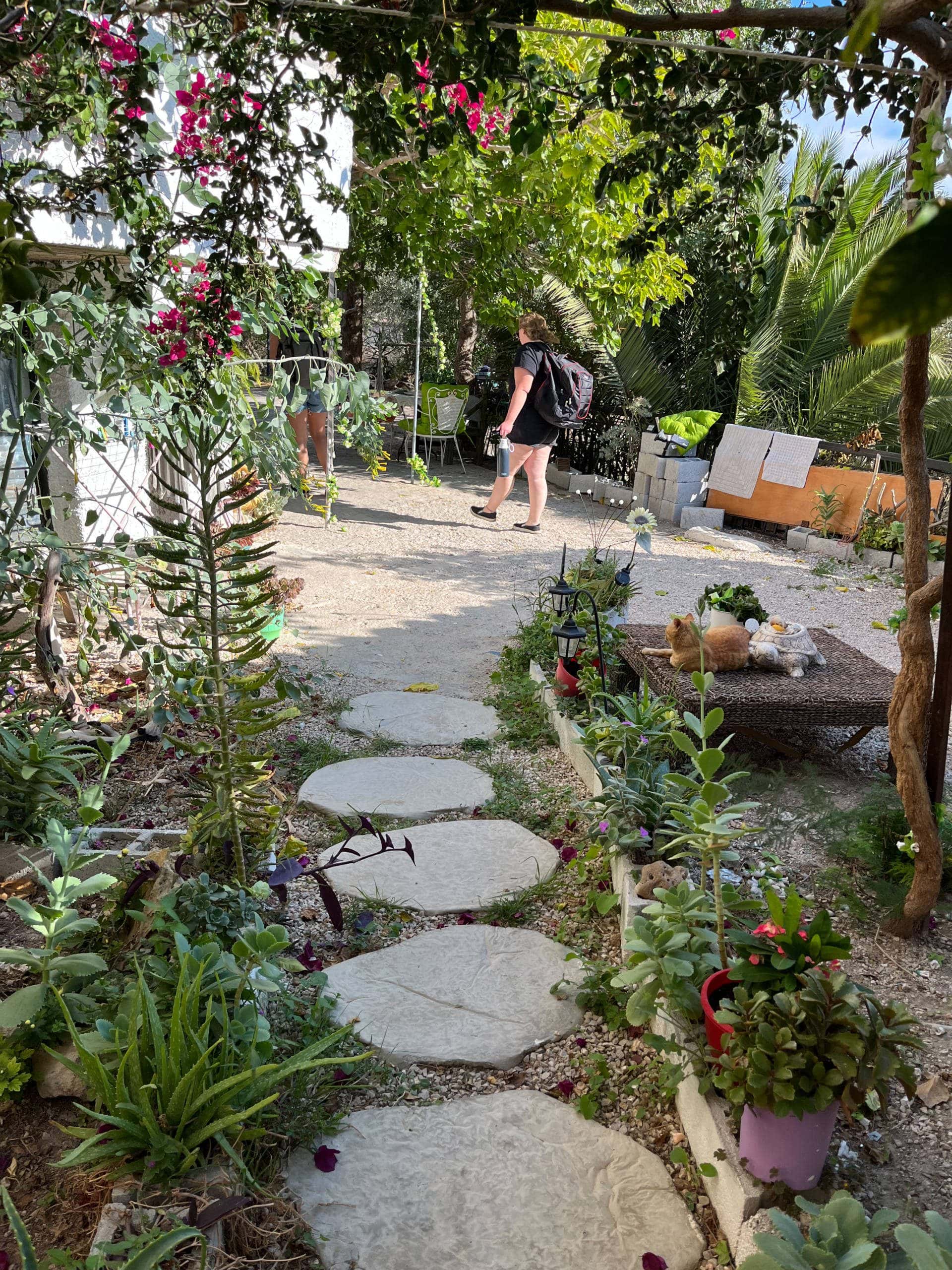
As a popular weekend getaway for Athenians, Aegina lacks both the mythos of Ithaca and Crete as well as the tourist infrastructure of Mykonos and Santorini, but makes up for it in charm. The sounds of birds chirping, cats mewing, leaves rustling, and small motorcycles humming past. We walked through the sleepy town’s cracked sun-bleached streets to our Airbnb, which was complete with a friendly deaf dog, a rope swing, a tree growing through the bathroom, and a veritable lemon orchard in the backyard. I found that the people in Aegina seemed much more in tune with the land. Sarterius, our cab driver, boasted that everyone on Aegina has their own pistachio trees and olive orchards and as a true community, they harvest together on one day in August.
We were fortunate enough to be in Aegina during Oxi Day, a national holiday celebrating Greek resistance to Nazi occupation. As we ate breakfast at an outdoor cafe, we watched lines of young Greeks in white shirts and black slacks walk to the parade grounds holding flags, listening to the strum of the bouzouki (a Greek guitar) in the distance. We decided to take a taxi to the Temple of Aphaia, which is thought of as a sister temple to the Parthenon.
As we hiked down the mountain to the beach at Agia Marina, a sleepy beach town on the northeastern coast of Aegina, we passed a hand-made sign that read “Shortcut” and maneuvered through the rocks. Agia Marina was in its off-season, so the town was largely deserted. There were no people and there was no noise except the wind and our footsteps. We laid out our towels on the beach and we viewed a shore filled with stones instead of shells. Some say that quieter experiences like this are hard to find without signing up for a Semester at Sea Field Program, but I have to say that it’s certainly doable to find it independently.
Before arriving, we felt as though Semester at Sea had prepared us well for the customs and culture in this new city. For example, our music professor, Jonathan Kramer, taught us about Greek instruments like the bouzouki at the Cultural Pre-Port. Also, speakers at the Logistical Pre-Port lecture explained the significance of Oxi Day which gave us a background knowledge of the festivities we encountered. What we couldn’t prepare for was the beauty of this city–scenery so captivating that you just have to see it for yourself. We were amazed by the temple nestled on top of a windy peak, with a feeling of being much more preserved in time than the Parthenon, swarming with tourists. Surrounded by forestry, we felt like we had escaped the city.
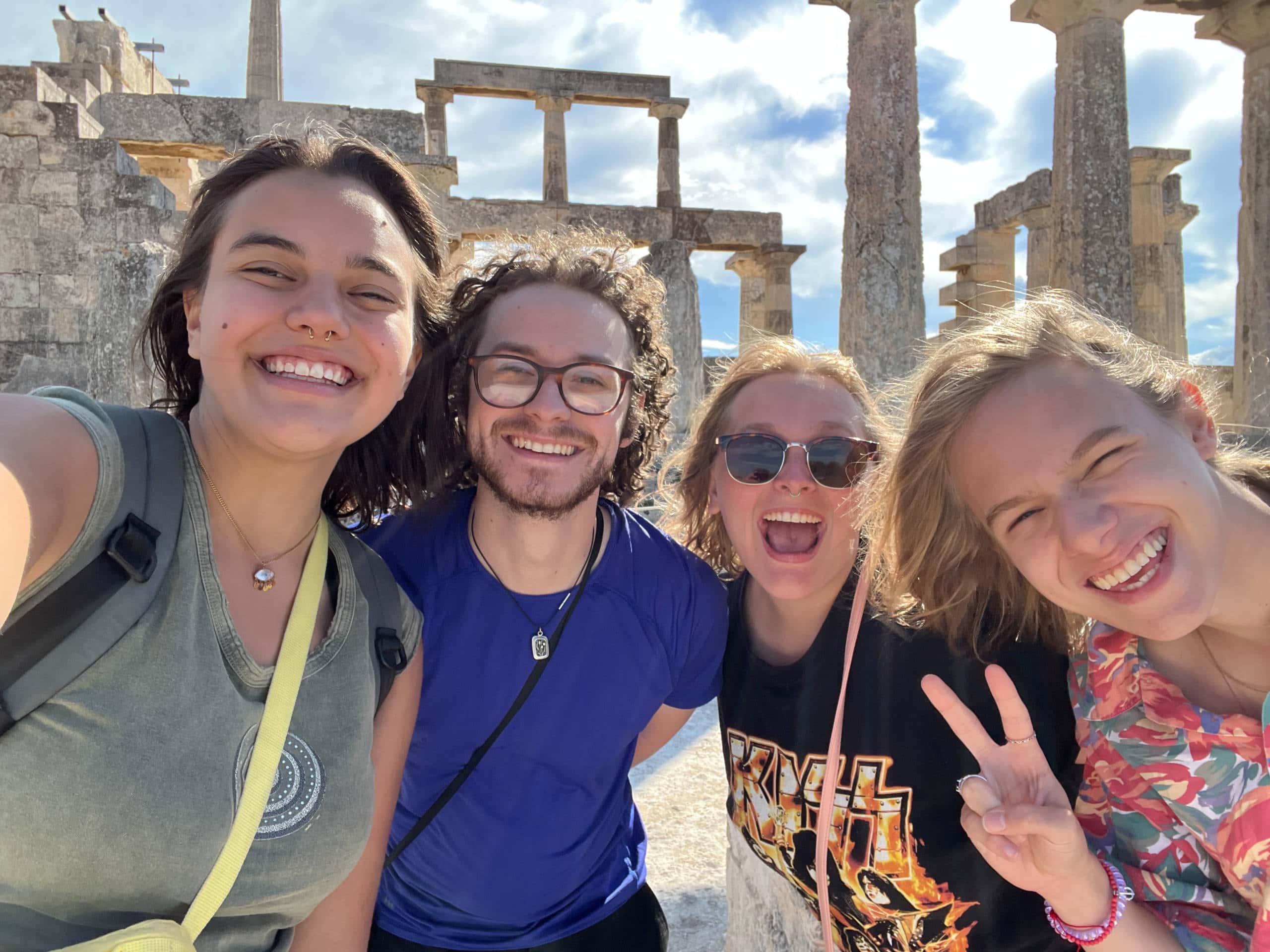
Semester at Sea is an atypical study-abroad program, one that encourages self-reliance and finding one’s own way, getting off the beaten path. My friends and I felt like well-equipped travelers as we navigated the landscape of Aegina that day, due in no small part to Semester at Sea’s preparation and guidance. We were able to view traditional holiday practices and music, see an ancient temple, hike down a mountain, visit a beach, and return to Piraeus all in one day. We felt like global learners and real travelers, adapting and problem-solving on the fly. People got very excited when they found out I was going to Greece. I now see why.
